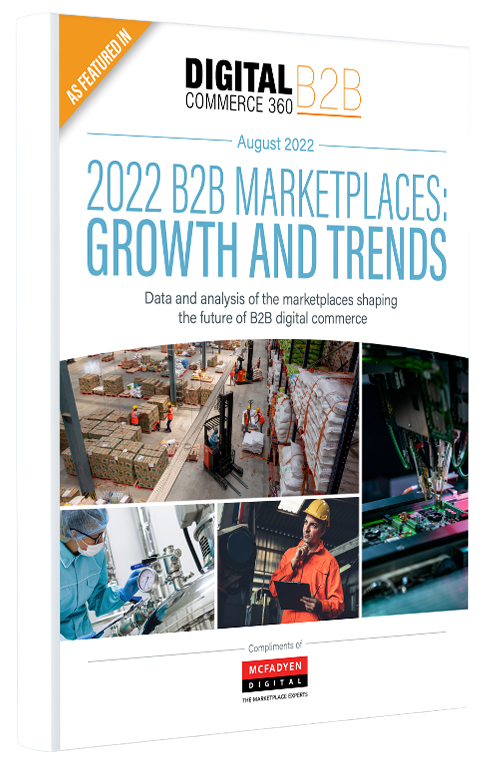Made for each other: B2B ecommerce and marketplaces
The B2B ecommerce industry has had a love/hate relationship with marketplaces over the last 20 years. From late 1999 through 2001, B2B marketplaces went looking for love from B2B buyers and sellers, but the resulting affair was short. The idea was sound: Bring together diverse groups of buyers and sellers in a particular industry or market and give them the online platform to do business en masse with each other.
But the technology was inadequate to nonexistent, buyers and sellers on a wide scale were not interested, and competitive differences kept industry marketplace coalitions from working successfully together. Fast forward to 2022, and B2B buyers and sellers are in love once more with marketplaces. And the feeling from marketplace operators is mutual.
The ongoing COVID-19 pandemic forever changed how buyers want to do business with ecommerce sellers. A younger and more online-oriented business buyer is primarily a digital-first customer.
And where this rapidly growing audience wants to do business is online — and on marketplaces. B2B marketplaces are now the fastest-growing channel in B2B ecommerce, based on a market projection from Digital Commerce 360.
Complete the brief form to download this report and learn more about the state of B2B Marketplaces...
